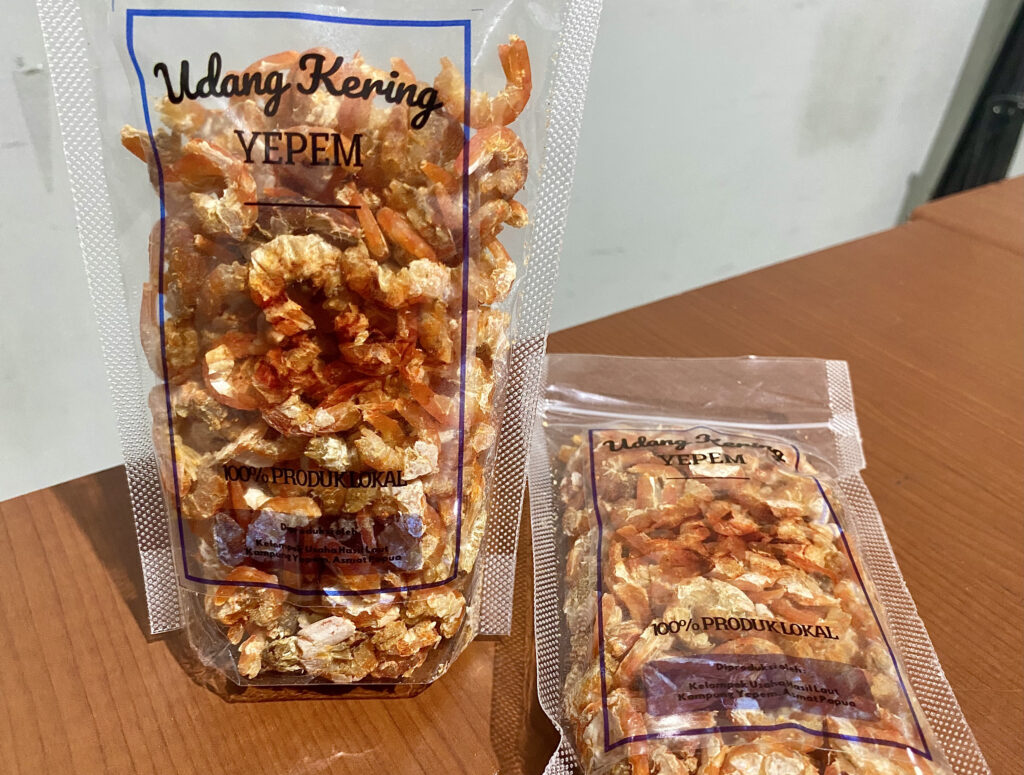Papua’s coastal regions are home to the largest mangrove ecosystems in all of Indonesia. One such mangrove ecosystem, which remains largely pristine to this day, is in Kampung Yepem, a village in Asmat regency, South Papua province. Geographically speaking, Kampung Yepem is located within Agats district, and is mostly made up of coastal mangrove forests and swamps. Most people are settled on the banks of the mouth of the Jomboth river where it empties into the Arafura Sea.
The residents of Kampung Yepem belong to the indigenous Kaye-Yepem tribe. They depend on resources from the environment around them, both the forest and the sea, in order to make a living. In the coastal area near Kampung Yepem, much of the soil is made up of sediment deposited by the river. This land is used to cultivate various types of fruits, vegetables and other agricultural products, such as coconuts. Meanwhile, villagers utilize the forested areas for sago cultivation and to hunt various types of animals to sell later in the market.
The people of Kampung Yepem utilize the waters near the mangrove forest to catch fish and shrimp, both for daily food needs and to be sold. These marine-based activities make up one of the most important pillars of the local economy. Usually, shrimp and fish are abundant in the season after the most intense rains, or the konda period, as it is known in Kampung Yepem. Konda is characterized by special conditions whereby the tides ebb and flow at a slower pace than usual. This occurs first from around late April to June and again from late September to November.
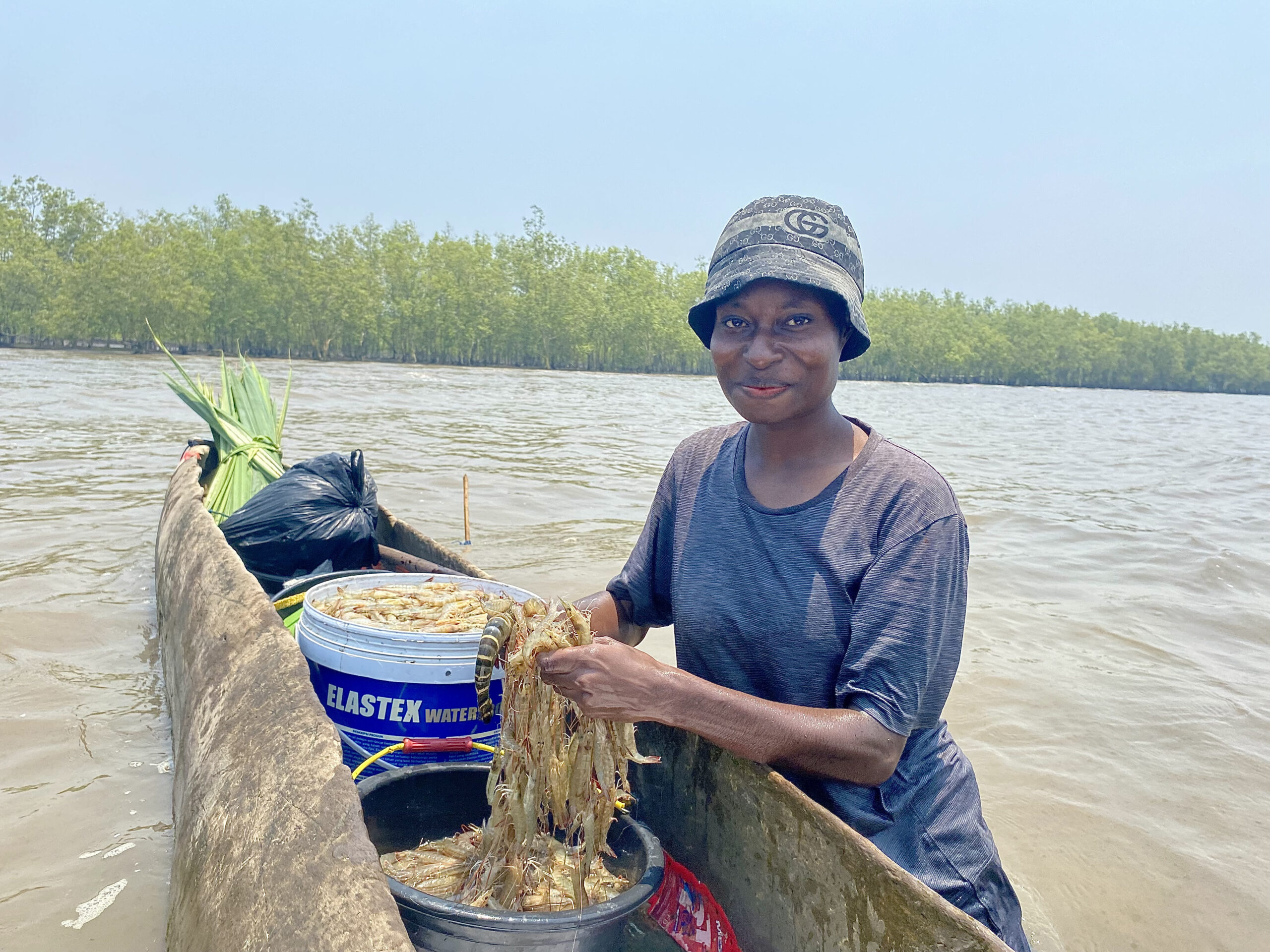 Mama Aprilia with the day’s shrimp catch
Mama Aprilia with the day’s shrimp catch
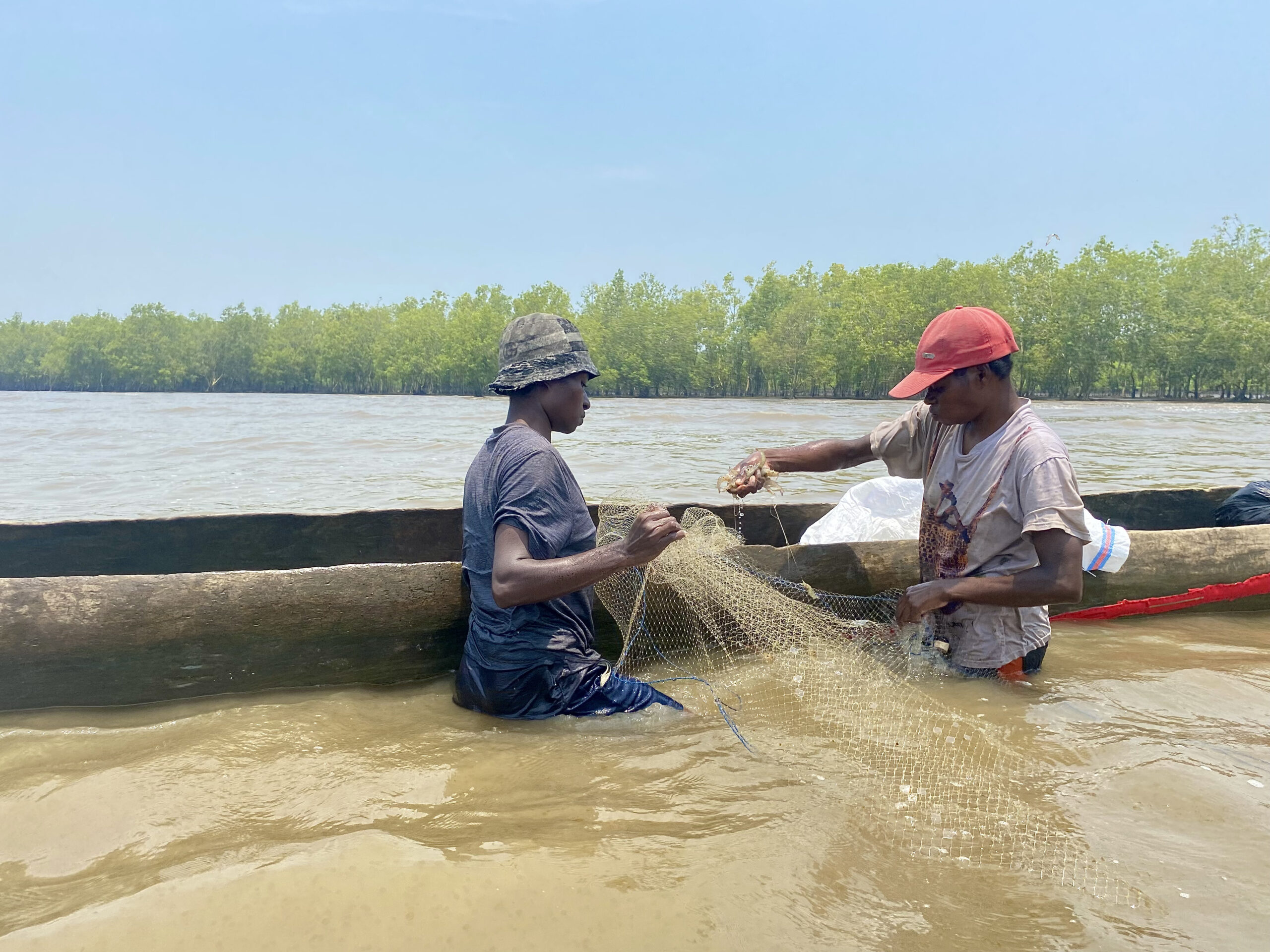 Local women collecting shrimp from a net
Local women collecting shrimp from a net
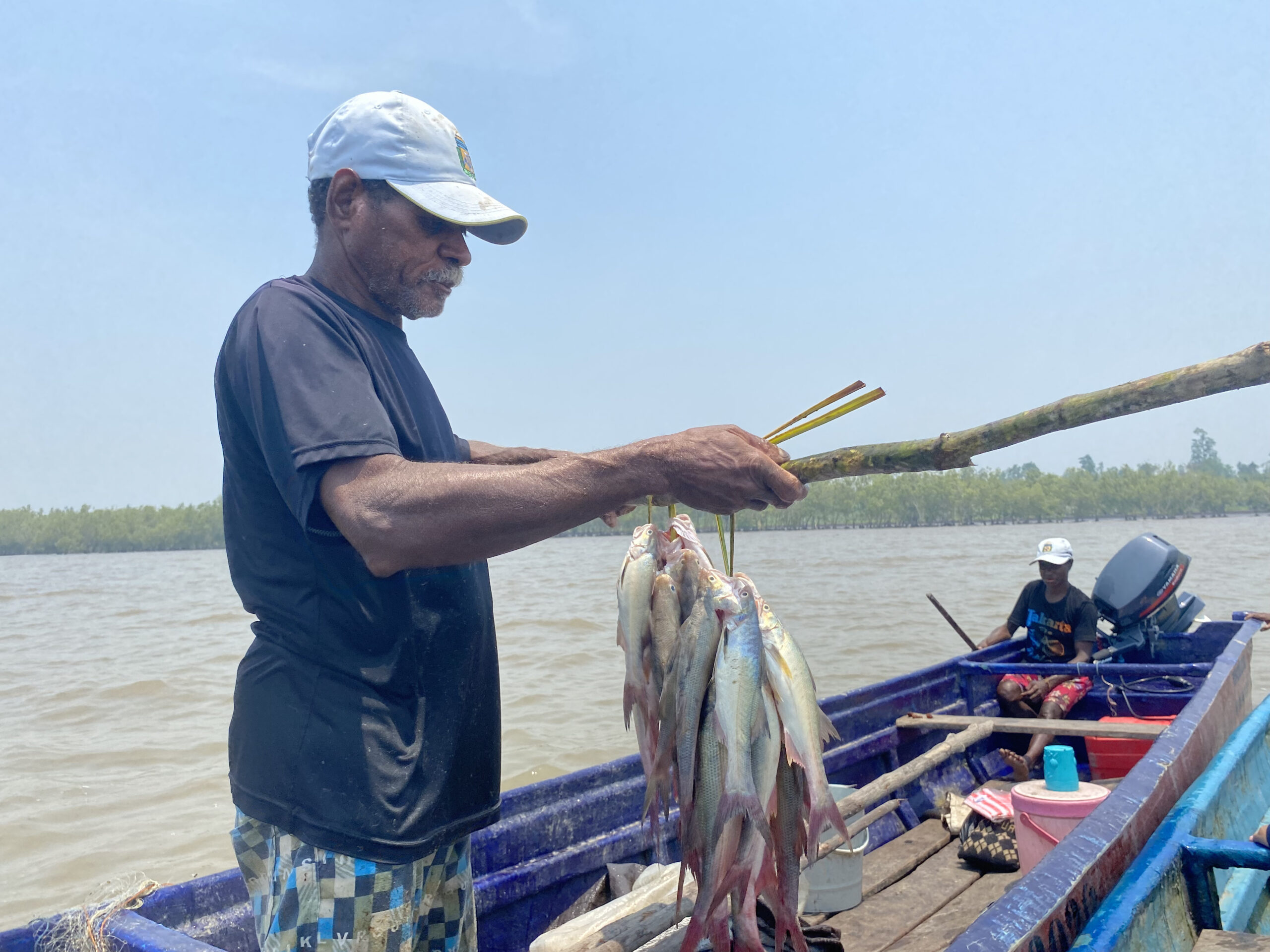 A man sorts his catch of fourfinger threadfin (Eleutheronema tetradactylum)
A man sorts his catch of fourfinger threadfin (Eleutheronema tetradactylum)
If the shrimp and fish catch is plentiful (~15/20 kilograms per person), usually the catch will be turned into different types of local food products and sold in Agats, the district capital. However, due to a lack of access to electricity for refrigeration, if all of the catch is not successfully sold, sometimes the fish and shrimp rots and must be simply thrown out. Beyond this, the distance from Kampung Yepem to the market in Agats is quite far, requiring around 45 minutes to reach using a standard 15 horsepower long-boat. For villagers without their own boat, a fee of IDR 50,000 (around $3.20 in USD) is required for the trip to and from the market using public transport.
Realizing the economic impact of this food waste, local people began searching for ways to better manage and process their shrimp and fish catches into products with a longer shelf-life. Blue Forests invited the community to collaborate in the realization of this initiative. Following a series of discussions with local women’s groups, Blue Forests held a group business training session in October 2023 relating to shrimp and fish processing methods. This training session followed the Participatory Action Research (PAR) approach, meaning that the participants, mostly local women, were invited to identify the resources which have the best potential to be processed into higher-value goods, as well as the best times and places to harvest these resources. In practice, the participants worked together to harvest shrimp and fish stocks located near the mangrove forest. The mangrove forest and its surrounding waters provide an excellent habitat for many types of wildlife, including economically valuable shrimp and fish like the fourfinger threadfin (Eleutheronema tetradactylum), or ikan kurau in Indonesian.
After pulling in the catch, the participants began the process of drying out the shrimp and fish. The participants learned this technique step-by-step, beginning by soaking the shrimp in water and cleaning the fish, next transfering the shrimp to a container to be boiled, and finally, sun-drying the shrimp and fish over the course of around four days. Afterwards, the participants were taught simple packaging techniques to ensure a good standard of hygiene and to make the product more attractive in the market.
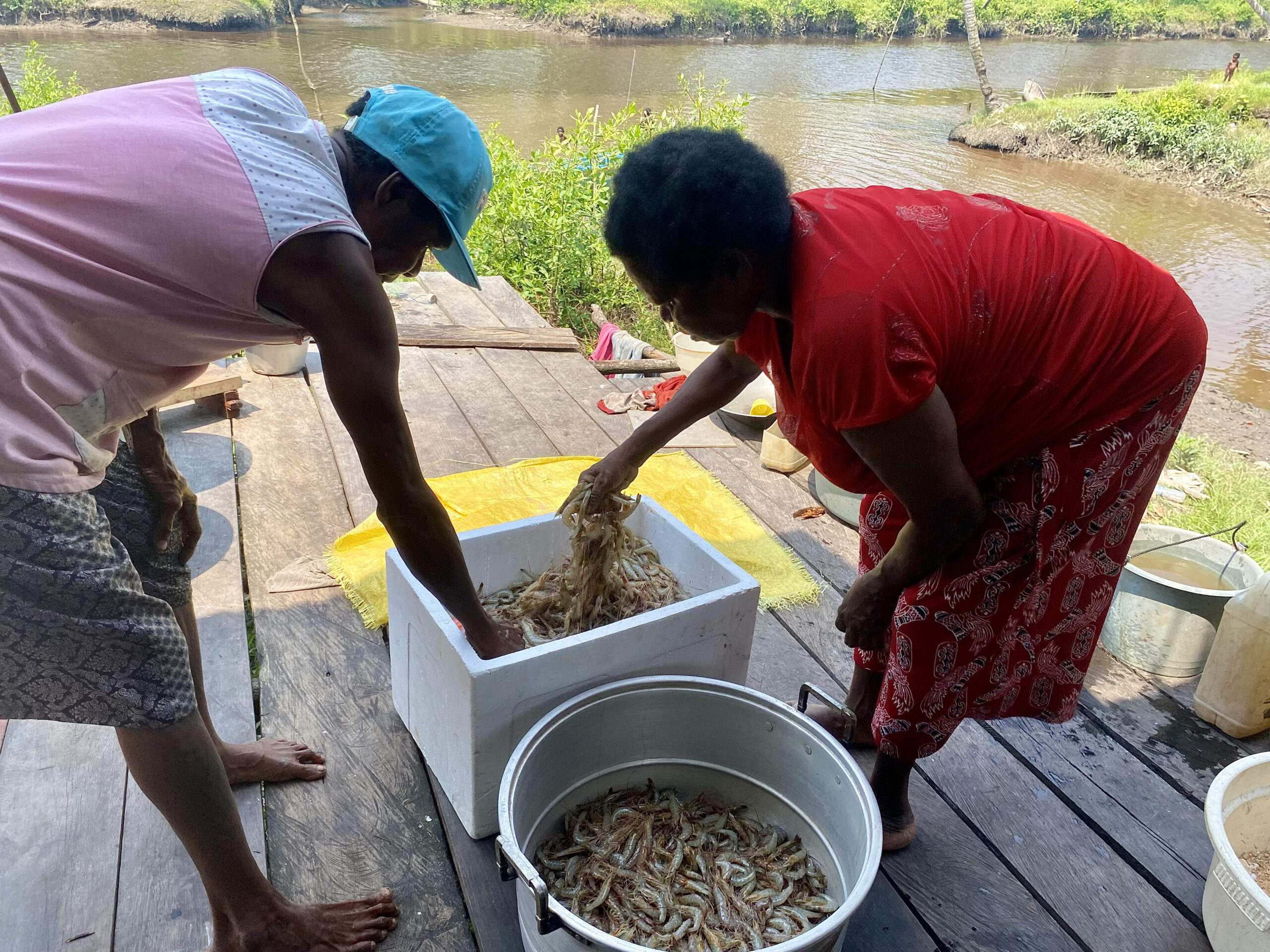 Transferring the shrimp to a pot for boiling
Transferring the shrimp to a pot for boiling
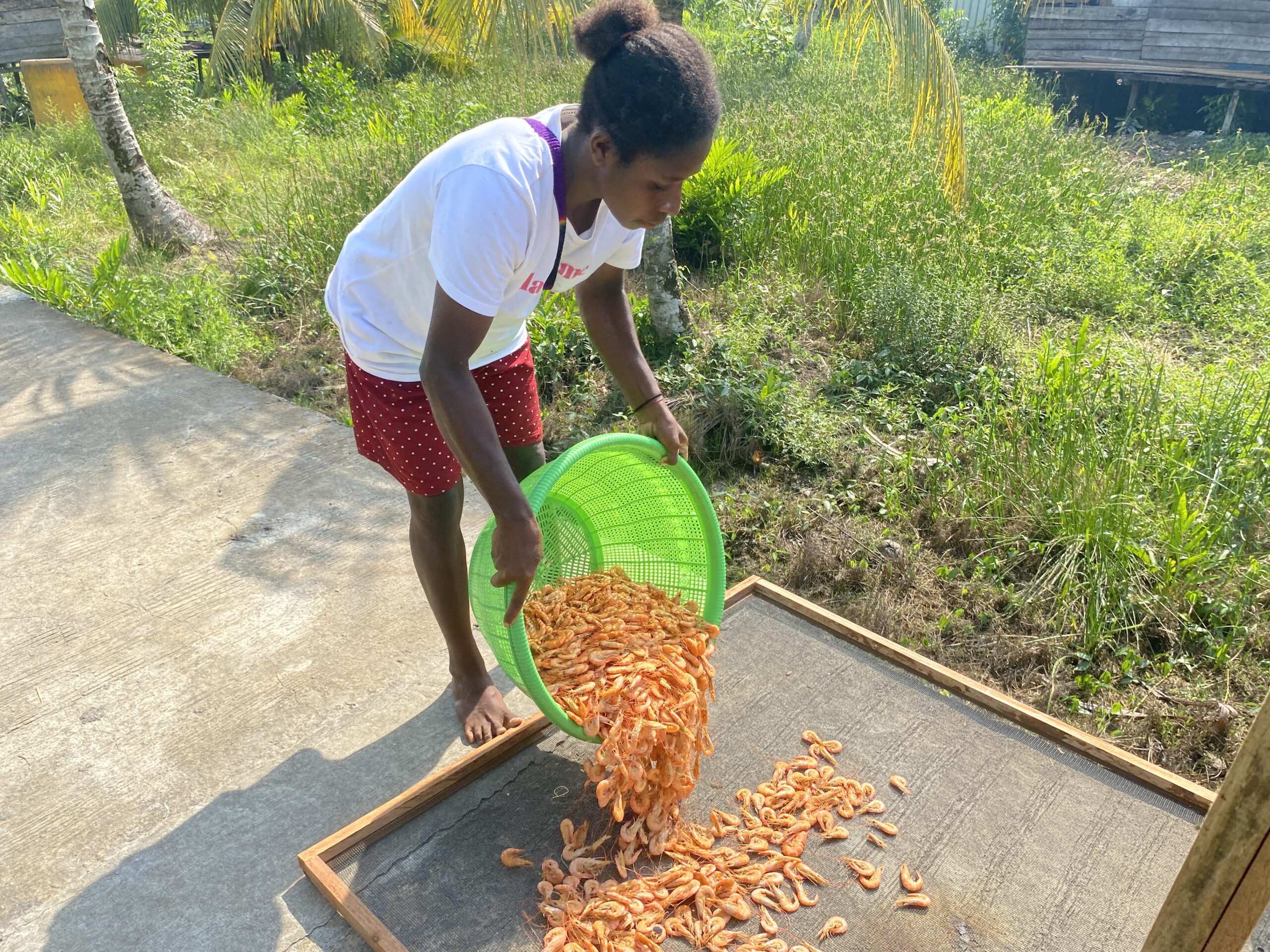 Laying out the shrimp to be sun-dried
Laying out the shrimp to be sun-dried
 Participants add salt to the fish before drying
Participants add salt to the fish before drying
As a result of this training, the participants not only were able to develop practical skills related to the processing of their fisheries products, but they were also successful in strengthening community rapport. The collaboration required to complete the preservatory process led to the creation of a more positive community atmosphere. The participants were able to share their experience and knowledge with each other in order to improve upon the process.
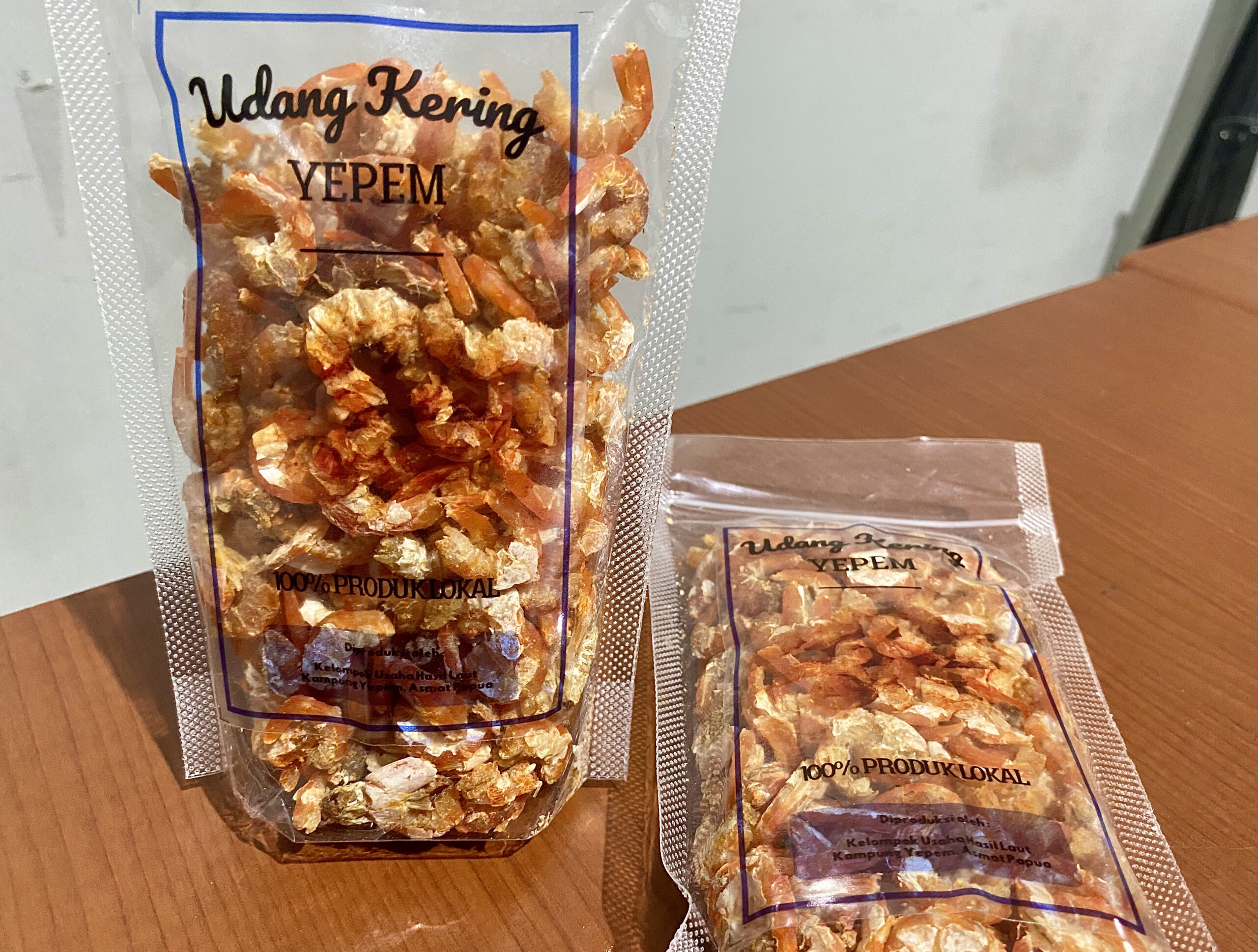 The final product: Packaged dried shrimp
The final product: Packaged dried shrimp
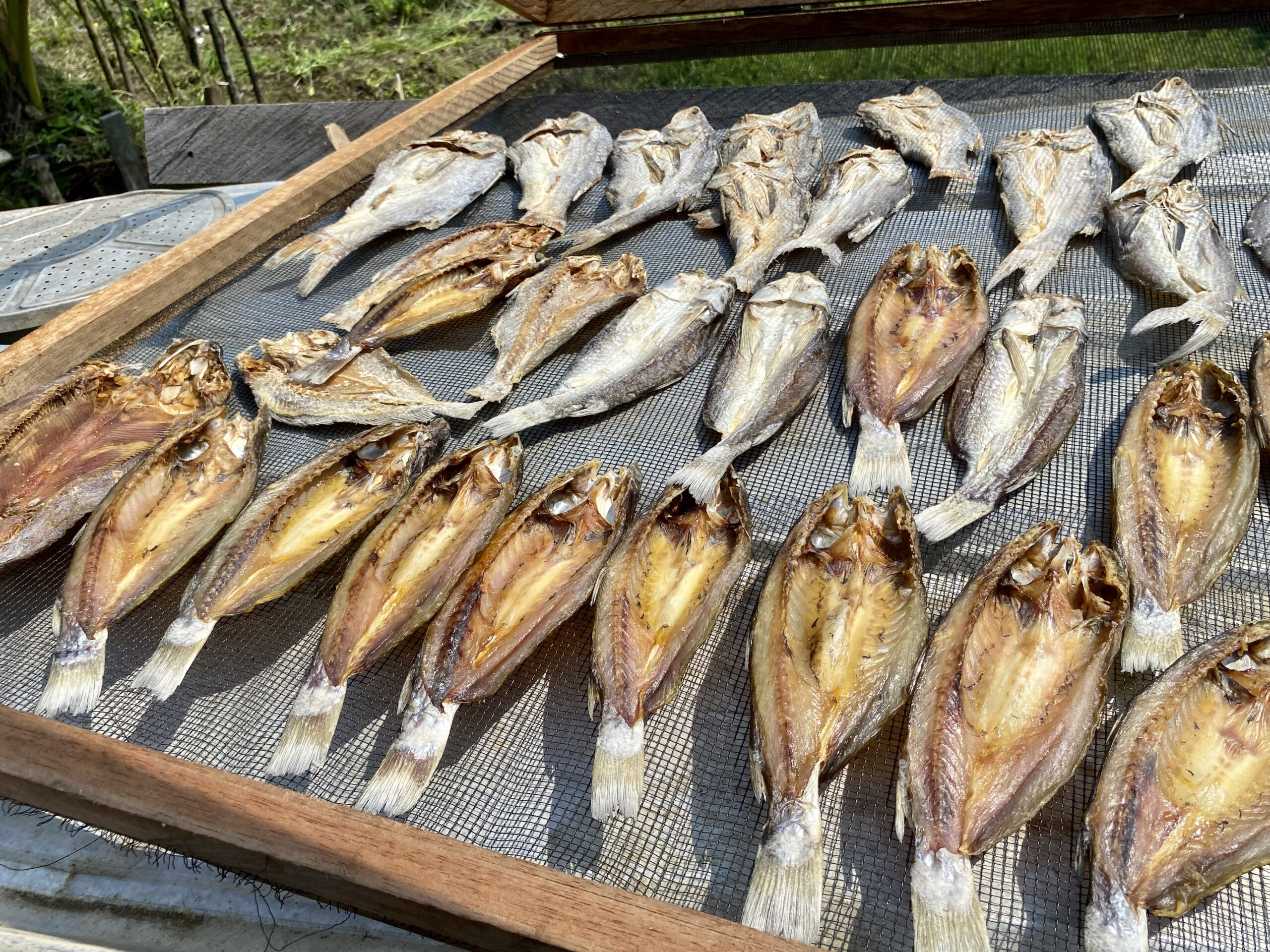 Salted dried fish ready for market day
Salted dried fish ready for market day
“It turns out that making preserved fish and shrimp is pretty easy. We can do this again next season if the fish and shrimp are still abundant, so that the products last longer, and we also don’t have to go straight to the market after catching them,” said Sarlota, one of the women who participated.
Besides this, the participants expressed a hope to be able to diversify the commodities that they sell. Mama Paulina stated, “we can try to apply this technique to other types of fish, to preserve them and then sell them later. If we don’t sell all of them, we can store the salted fish and dried shrimp to eat if for some reason we aren’t able to go catch more fish and shrimp, for example if the weather is bad.” The other participants sounded their approval with Mama Paulina’s statement.
The training in processing fish and shrimp into preserved products proved to be a valuable experience for the participants at Kampung Yepem. They were able to learn techniques to maximize the benefits of their natural resources while at the same time minimizing food waste. The participants themselves felt that the training was highly beneficial because it provided a viable alternative for increasing their income in a sustainable manner.

